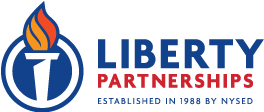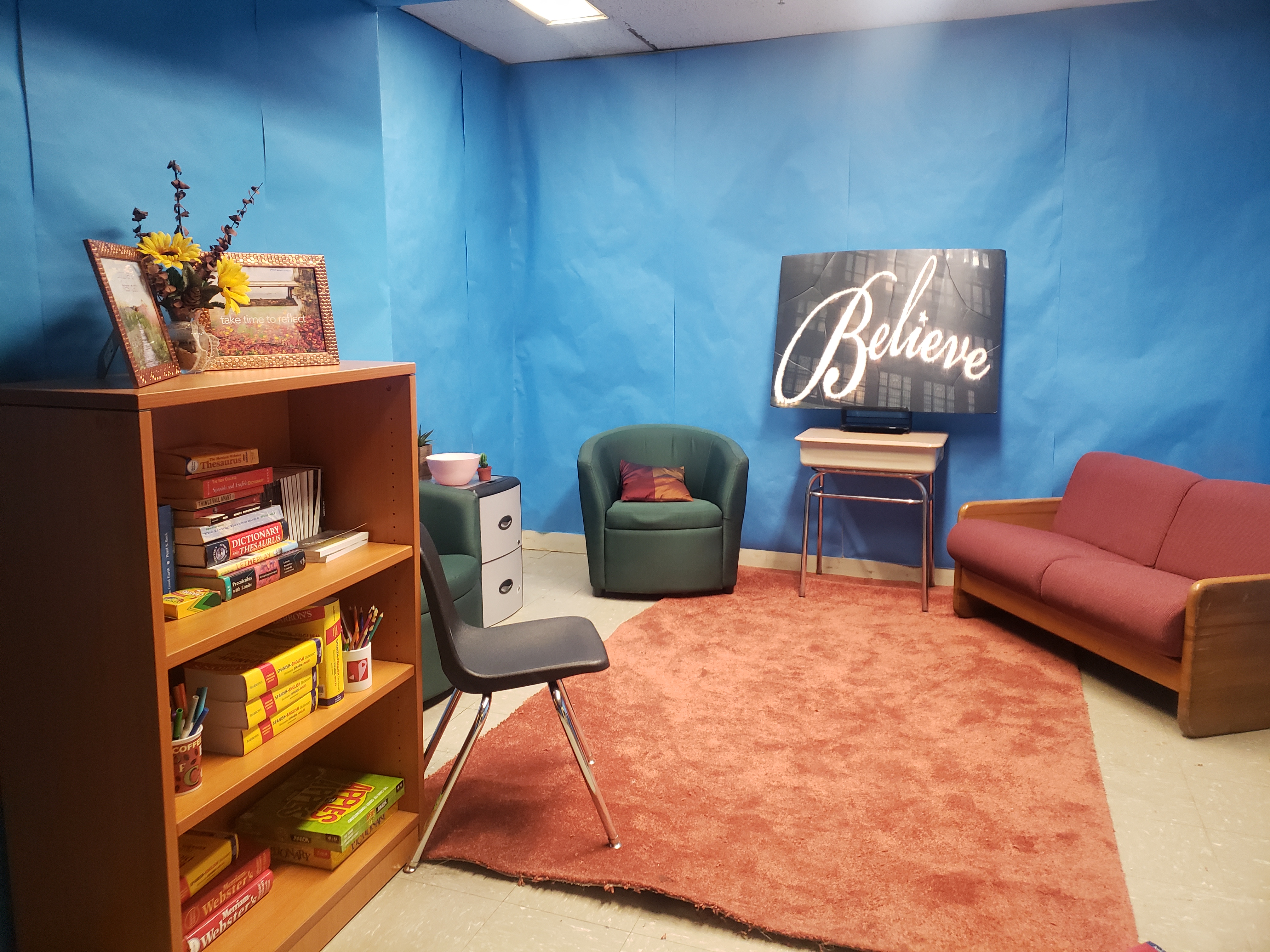Safe and Sacred Space
By Sean Anderson
Medgar Evers College
Liberty Partnerships Program
Director
Several years ago, when my students were being dismissed from our summer camp, several of them were standing on a street corner when they witnessed a young woman get shot in the head. The murderer smiled at them as he turned his gun on his victim and fired. My staff and I figured that the next day many of them would stay home instead of coming back to the area where they witnessed such a horrific sight, but we were wrong. Every one of the students came back the next day. When we asked them how come they didn’t just stay home for the day, they basically all said the same thing. They said that even though the streets were not all that safe, the Medgar Evers College Liberty Partnerships Program was one of the safest spaces they had in their lives.
We brought in social workers to facilitate sessions to help the students cope with the trauma connected with what they saw on that street corner. During one of those sessions, the students spoke about their own personal experiences with violence prior to witnessing the murder of the young lady. One after the other, they told stories that no child should ever have to tell about their lives, and not just stories about the violence that existed on the streets, but also stories about the violence, physical and emotional, that existed in some of their neighborhoods and some of their schools. At the end of this long day of counseling and healing, when it was time to reflect upon the activities, one student stood up and said thank you. She said she was grateful we gave her a space where she could feel emotionally safe enough to share things she had never felt safe enough to share before this day. She also said thank you for creating a sacred space where she felt honored.
It is easy to think that it is enough to create spaces where children can feel that they are physically safe. One may believe that as long as a child comes back home from school in one piece, then it is a job well done. After all, in a world where young women can be shot down on street corners in broad daylight, in front of school children, how can one not think just keeping our young people alive is enough? Yet, when one talks to our students about what it means for them to feel safe, they often talk about far more than being physically safe. Most of the students I have known talk about wanting to be emotionally safe as well.
The term we use to describe a Medgar Evers College LPP program space is Safe and Sacred Space. These are our MEC Liberty Partnerships Program spaces we set up with the goal of keeping our students physically, emotionally and socially safe while at the same time honoring their humanity. Also, when they are in these MEC LPP program safe spaces, we work toward convincing our LPP Participants that they are sacred beings who can manifest any dream they can imagine. Perhaps, this is why our students felt safe enough to share their personal stories with us that day. A child who can speak his or her pain out loud must have an understanding that their words, like their pain, will be received with a reverence born out of a deep compassion and love.
The buzz phrase in education today is Social-Emotional Learning. The Collaborative for Academic, Social, and Emotional Learning defines Social and Emotional Learning (SEL) as the process through which children and adults understand and manage emotions, set and achieve positive goals, feel and show empathy for others, establish and maintain positive relationships, and make responsible decisions. As for me, I define SEL as Learning that focuses on all the interpersonal interactions with one’s learning environment and others in that learning environment, be it a school classroom or the world at large, which need to be founded on love. Yet, however one defines SEL, there is no doubt that a Safe and Sacred Space, a space created with SEL at the core of how it is facilitated, needs to be an environment formed out of a profound understanding that we must not only tend to the minds of our children, but also to their hearts.
Looking back at my own childhood, I often think of the Safe and Sacred Spaces that not only kept me safe in school, but also that empowered me to be able to face life’s challenges with courage. One such space that was created for me was in elementary school after I suffered from a severe racial attack in a school bathroom. This was an attack that was so severe that my mom was considering sending me back to Jamaica just to keep me safe from a racialized world neither one of us truly understood at that time. My Math teacher, Ms. Garvey, used to talk to me all the time about how she believed I was capable of achieving any dream I could imagine and that I should never allow hate to stop me from reaching my goals. As a young boy, I am not sure I understood everything this tough Irish woman used to say to me, but I am sure that I understood that she cared a great deal for me. When I was in her classroom or simply in her presence anywhere in the school, I felt safe and I also felt honored. I knew that even if the world did not believe in me or was hostile to me, there was a space I could go to where I could be kept safe and be seen as a sacred. As a result of Ms. Garvey providing these Safe and Sacred Spaces for me, I was able to successfully transition to high school and then on to college despite the many obstacles that stood in the way of my success.
Liberty Partnerships Program is now and has always been at the forefront of creating Safe and Sacred Spaces for students throughout the state. When one listens to the LPP students at the Empire Summit talk about why LPP is important to them, they almost always mention that it is not only a space where they feel honored, but also a space where they feel safe. They also often talk about the fact that LPP staff listen to them with open hearts and accept them without judgment while always pushing them to do their best and be their best in all spaces. As many LPP students have told me in the past, the most important support we have provided them with has been support aimed at meeting needs that cannot be measured on a state test, but rather the needs that really affect how they see themselves in the world. Can I truly be more than I believe I can be? Can I overcome all the obstacles in my life? Do I really have the potential to be great? All of these questions are constantly being asked and answered in Safe and Sacred Spaces where LPP staff throughout the state are fighting to help at-risk students from some of the most marginalized communities in the state to succeed.
A MEC LPP Alum, now a student at John Jay College, once told a classroom of future teachers a story about what he was doing the day the earthquake struck Haiti. He said he was just leaving school when all of a sudden the ground shook and the world around him fell apart. Part of that world which fell apart that day was his school building he had just exited. Classmates and teachers he had just seen minutes before walking out the school were all of a sudden buried beneath tons of brick and cement. He went on to talk about all the death he saw that day as he had to walk miles through dust and rubble to get out of the city. When he was done telling the class his story of survival, he then spoke about what helped him to overcome the trauma of that time. He said that after immigrating to the States it was the Liberty Partnerships Program that really helped him to heal. He said that is was the Safe and Sacred Space we created for him which allowed him to not only deal with his pain, but to take ownership of that pain so that instead of it being a hindrance to him, it became a source of strength for him.
What if every student had a Safe and Sacred Space in and out of school? What if they could go to people dedicated to supporting them when they feel most vulnerable and most lost? How many more children could be saved not only from dropping out of school, but also from dropping out of life if we could create these Safe and Sacred Spaces in all of our schools? Perhaps, as the Haitian young man said to the class of future teachers that day, we could save all of our children if as a society, we could all strive to make every space in our country a Safe and Sacred Space, and if we can’t do that just yet, then perhaps we can simply have more spaces like the one LPP created for him that truly saved his life.

